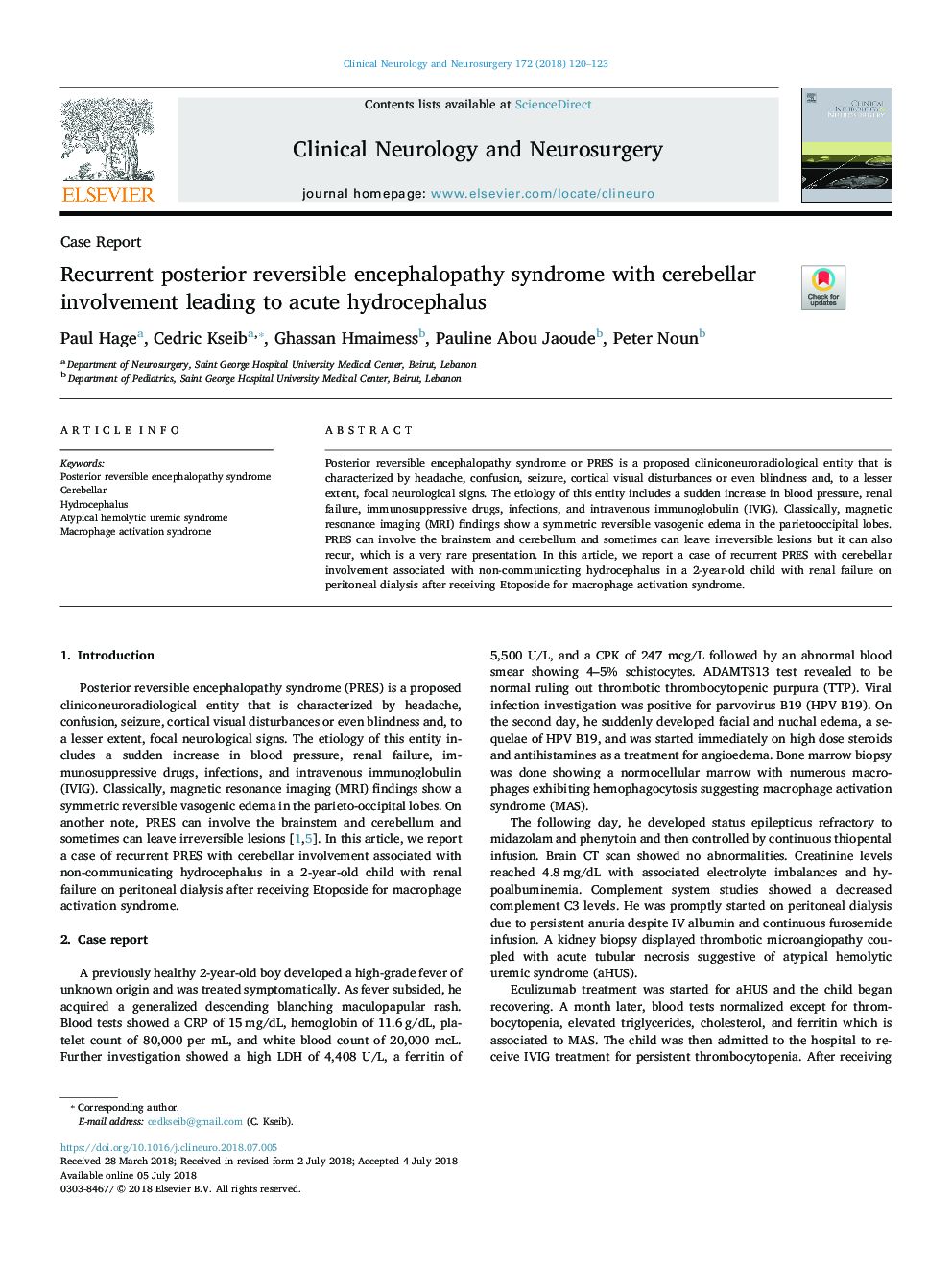| Article ID | Journal | Published Year | Pages | File Type |
|---|---|---|---|---|
| 8681682 | Clinical Neurology and Neurosurgery | 2018 | 4 Pages |
Abstract
Posterior reversible encephalopathy syndrome or PRES is a proposed cliniconeuroradiological entity that is characterized by headache, confusion, seizure, cortical visual disturbances or even blindness and, to a lesser extent, focal neurological signs. The etiology of this entity includes a sudden increase in blood pressure, renal failure, immunosuppressive drugs, infections, and intravenous immunoglobulin (IVIG). Classically, magnetic resonance imaging (MRI) findings show a symmetric reversible vasogenic edema in the parietooccipital lobes. PRES can involve the brainstem and cerebellum and sometimes can leave irreversible lesions but it can also recur, which is a very rare presentation. In this article, we report a case of recurrent PRES with cerebellar involvement associated with non-communicating hydrocephalus in a 2-year-old child with renal failure on peritoneal dialysis after receiving Etoposide for macrophage activation syndrome.
Keywords
Related Topics
Life Sciences
Neuroscience
Neurology
Authors
Paul Hage, Cedric Kseib, Ghassan Hmaimess, Pauline Abou Jaoude, Peter Noun,
